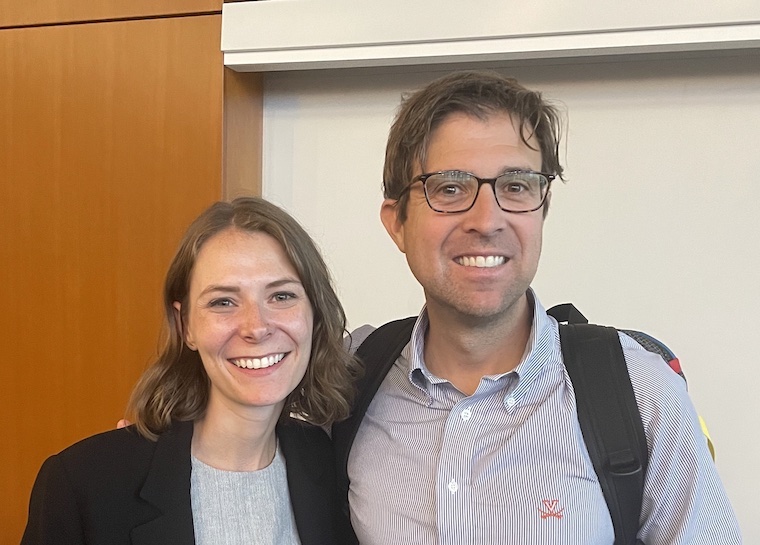Our John Lukens, PhD, and his collaborators have discovered a "master switch" in the brain that controls the immune response to Alzheimer's, multiple sclerosis and other neurodegenerative diseases. Doctors may be able to use the finding to supercharge the body's ability to battle these diseases, opening the door to new ways to prevent and treat them.
The controller the researchers identified is a molecule called "spleen tyrosine kinase." This kinase is vital to both removing plaque buildup associated with Alzheimer’s and preventing the debris buildup that causes MS, the researchers found. It does this by directing the activity of brain cleaners called microglia, which have emerged as major players in brain health in recent years.
The researchers found that the absence of the kinase in mouse models of Alzheimer's triggered plaque buildup in the brain and spurred memory loss – as seen in humans with Alzheimer’s. Further, activating the molecule reduced plaque buildup, suggesting a potential treatment approach for people.
“Our work has described a critical element of microglial function during Alzheimer’s disease and MS,” said Hannah Ennerfelt, the first author of a new scientific paper outlining the findings. “Understanding the underlying biology of these cells during neurodegeneration may allow for scientists and doctors to develop increasingly informed and effective therapeutic interventions.”
A mouse model of MS produced similar results. The absence of the kinase led to the buildup of damaged myelin, a protective coating on nerve cells. When myelin is damaged, the cells cannot transmit messages correctly, causing mobility problems, muscle spasms and other MS symptoms.
Based on their promising results, the researchers report that targeting the molecule to stimulate the brain’s immune activity could offer a way to treat not just Alzheimer’s and MS but a “spectrum” of neurodegenerative diseases.
“These findings are especially exciting because they point to a treatment avenue in which we could alter the behavior of these native brain cells, microglia, to behave in a more neuroprotective way,” said researcher Coco Holliday, a UVA undergraduate working in Professor Lukens' lab. “It could potentially be applied to a variety of different neurological diseases that all share the problem of a buildup of toxic waste in the brain. It’s been a very exciting project to be a part of.”
